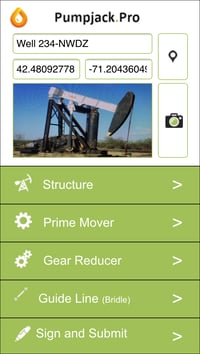 As oil reserves shrink and it becomes more expensive and dangerous to find and exploit new ones, the oil industry is turning to what’s been called the digital oil field to better and less expensively extract and use oil from existing fields.
As oil reserves shrink and it becomes more expensive and dangerous to find and exploit new ones, the oil industry is turning to what’s been called the digital oil field to better and less expensively extract and use oil from existing fields.
But the term is something of a buzzword, and it’s not always clear what it means. In this blog post, I’ll clue you in how it works and how you can get more out of it.
What Is a Digital Oil Field?
As Jane Whaley explains in the article “What is a Digital Oil Field?” for the petroleum geoscience magazine, BEOExPro, “Many people think of the digital oil field as a fancy technological hub, with hundreds of flashing screens and a couple of experts earnestly comparing notes in a hushed environment. But it is better described not as a physical presence, but as a concept, encompassing not just data being streamed from far distant wells, but the processing, integration and analysis of that data in a number of physical environments.”
In other words, it’s applying the lessons that many non-oil companies have learned in their digital transformations — use technology to improve business processes, increase communication throughout the business, and gather and mine data for insights to make the business run better.
In the digital oil field, she says, that requires automation. She writes, “By taking the human out of mundane tasks, productivity is increased, and the expert is freed to use his or her knowledge on more difficult, analytical work. Integrating a large number of the processes involved in drilling, such as remotely steerable down-hole and integrate-while-drilling tools, produces large quantities of real-time data across a range of disciplines.”
Many in the Oil Industry Remain Slow to Adapt Despite Payoffs
That sounds logical. But the oil industry has traditionally been slow to adopt digital technologies, which can make creating the digital oil field exceedingly difficult. An article about digital oil fields in Innovation Enterprise warns, “A survey carried out by BP found that 60% of oil executives asked believed that resistance to change represented the biggest obstacle to realizing the full potential of the digital oil field. Oil and gas as an industry, is traditional and has tried to stick to the tried and tested strategies rather than attempting to adopt disruptive innovations.”
Big Payoffs for Digital Transformation:
Shell estimates that the value of its ‘Smart Fields’ implementation was $5 billion over five years
However, oil companies that have been serious about using technology to create digital oil fields have seen big payoffs, Whaley explains. She says Shell estimates that the value of its ‘Smart Fields’ implementation was $5 billion over five years. And she notes that the consulting company IHS Cera says that with digital oil fields, “companies could realize up to 25% savings in operating costs, up to 8% higher production rates, 2–4% lower project costs, and as much as 6% improved resource recovery, all within the first full year of deployment.”
 What’s the Best Platform for Helping Build a Digital Oil Field?
What’s the Best Platform for Helping Build a Digital Oil Field?
To accomplish this, oil and gas companies need to find the best platform for helping build the digital oil field. Alpha TransForm is ideally suited for the task. It has the unique ability to rapidly create mobile-optimized forms and field apps that can easily access and integrate with existing databases and web services. It builds offline apps, vital for the oil and gas industry, and excels at mobile apps for field workers.
Learn how Alpha Software is helping oil and gas customers or try Alpha TransForm yourself.
Additional Reading:
Find out how mobile apps can help rejuvenate the oil and gas industry.
Read about why oil and gas CIOs need to embrace digital transformation.
Find out five reasons why mobile apps are the oil and gas industry’s secret weapon.

Powerful Data Capture Apps for Inspectors, Exploration or Production Teams
Safety Inspections • Pipeline Inspections • Gemba Walks • Platform Audits • Certifications and Training •
Pumpjack Inspections • Work Orders • Time and Attendance • ISO Certifications •
Dispatch • Licensing • and more,,,







Comment